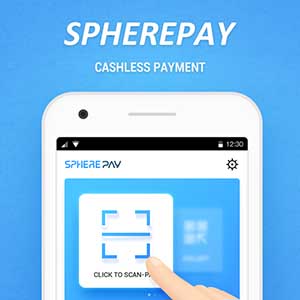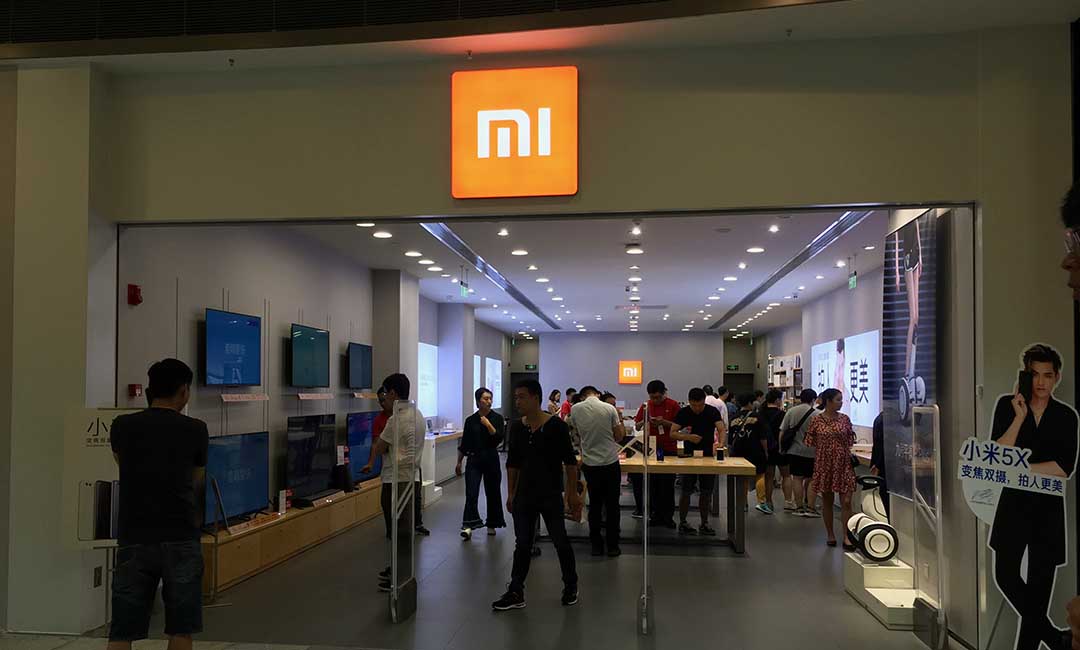Editor’s note:
In China, live trivia games are not only considered the remedy to problem-riddled live streaming platforms, but also part of the bigger strategy for big companies.
For example, Toutiao adopts the Q&A content from its own Quora-like website to its live streaming platforms. Baidu is riding on the wave to promote both its live streaming app and its search tool.
Xiaomi, the latecomer in the market, is likely to use the game as a channel to promote its whole range of products.
Kr-ASIA Daily is a five-minute read to brief you everything you need to know to start your day. We only choose the latest tech & startup news that is worth your time, with a focus on Southeast Asia and China.
Southeast Asia:

Singapore: City-state’s homegrown mobile payment app SpherePay announced that it has raised over US$10 million in a funding round from a group of undisclosed investors. (e27)
The Philippines: The Philippine Securities and Exchange Commission (SEC) is comparing notes with regulators in other countries as part of efforts to draft the guidelines for companies seeking to conduct initial coin offerings (ICOs). (Deal Street Asia)
Indonesia: Fintech firms, offering loans of as little as a few hundred dollars, are seeing a spike in lending in Indonesia where tens of millions of people have little or no access to bank credit – helping alleviate a financing shortfall estimated at more than $73 billion. (Deal Street Asia)
The Philippines: Philippine-listed lender Rizal Commercial Banking Corporation (RCBC) has informed the Philippine Stock Exchange that it has received board approval to conduct a stock rights offer (SRO) to raise up to Php15 billion ($291 million) in fresh capital. (Deal Street Asia)
Vietnam & Singapore: Singapore-headquartered Spiral Ventures (formerly IMJ Investment Partners) has announced its investment in Vexere Joint Stock Company, a Vietnam-based startup that operates online bus ticket and car booking system. (Deal Street Asia)
Malaysia: Malaysian online auction marketplace Lelong.my announced in a release the acquisition of digital marketing agency Mataris Agency for an undisclosed sum. (Deal Street Asia)
Indonesia: Indonesian e-commerce association (idEA) has called for the Ministry of Finance to provide level playing field for industry players by collecting tax from small and medium-sized enterprises (SMEs) transacting on social media platforms and online marketplaces. (e27)
China:

Xiaomi, China’s smartphone manufacturer, rolled out its very own live trivia game on its short video streaming app Youle Monday, marking the latest case of a Chinese tech company throwing itself into a recent fad of app-based live trivia games. (KrASIA)
Chinese tech conglomerate Tencent is leading a group of investors, including Suning, JD, and Sunac to acquire a 14 percent stake in Wanda Commercial Properties Co. for USD 5.4 billion (RMB 34 billion). (KrASIA)
Wang Jianlin, chairman at Wanda Group and once China’s richest man, says the company is not taking sides in the competition of new retail and it is steering the group’s commercial property arm away from property development to adopt an “asset-light” operating model and focus on the management of commercial properties. (36Kr)
American mobile network operator Verizon Communications has dropped all plans to sell smartphones by Huawei Technologies, including the new Mate 10 Pro, under pressure from the US government. (scmp)
According to a report by data service provider Jiguang, Chinese consumers have contributed RMB 7180 billion (approx. USD 1135 billion) to online retail in 2017. Taobao and JD have respectively a penetration rate of 53.3% and 20.6%. (36Kr)
Didi announced it is set to provide better services to commuters during the Chinese spring festival and will give RMB 1 billion (approx. USD 158 million) as subsidies to drivers. (36Kr)
Baidu replied to the speculation that the company seeks to raise as much as USD 2 billion for its financial arm, saying that it’s not true as there isn’t a set plan yet. (btime)
Sogou CEO Wang Xiaochuan: Sogou will seek to take 2%-3% market share from Baidu and will give more attention to companies in content making and data services. (Yicai)
Starbucks has seen a 6% rise in its global net revenue in the first fiscal quarter of 2018 with sales in China rose by 6%. CEO Kevin Johnson said the company is likely to have more stores in China than in the U.S. as the company has already understood the local market. (36Kr)
Sohu’s revenue has reached USD 1.86 billion in 2017, up 16% compared with 2016, thanks to its successful shift in its two main drives of the company: Sohu Video and Sohu media. (36Kr)
JD rolled out an offline store in Shanghai which consists of a staff-less supermarket powered by RFID, facial and image recognition. (The Paper)
Xiaomi is reportedly eyeing a Hong Kong IPO in Q3 and is likely to be valued at USD 90 billion to 110 billion. (All Weather TMT)
Tencent invests in China’s offline men’s clothing brand Hlamall, betting on the offline retail market. (36Kr)
Andrew Ng, ex-Baidu Chief Scientist, announced the establishment of AI Fund with participation from NEA, Sequoia, Greylock Partners and SoftBank. (tech.qq)
Chengdu’s first unmanned supermarket GOGO has reportedly shut down after only four months according to local reports. The unmanned shelf project, GOGO, run by the same Chengdu-based startup, Xiao Mang Guo Technology Limited, closed down months ago. At least 30 employees have not been paid on time. (Technode)
Financial services firm Orix Corp has led an RMB250 million (US$39 million) series A round in Innostic, a Chinese medical consumable supply chain management platform. (China Money Network)
Standard Chartered and SuperCharger, a Hong Kong- and Malaysia-based fintech accelerator programme, announced the 10 finalists for its third programme in Hong Kong at the Fintech Finals 2018. (e27)
Hong Kong conglomerate Pacific Century CyberWorks has made its first foray into e-commerce with the launch of Habbitzz, a premium-focused alternative to Amazon and Alibaba. (Mumbrella Asia)
World:

Ola — which counts Didi as an investor — announced that it has started recruiting drivers in Sydney, Melbourne and Perth in what will be its first expansion outside of India. (TechCrunch)
Google’s $1.1 billion deal to acquire most of HTC’s smartphone design division has officially closed. The deal involves more than 2,000 HTC engineers moving over to Google. (The Verge)
Publishers are freaking out about Facebook’s plan to show 20% less news in the News Feed. But over the past four months, Facebook already has become a less dominant social traffic source for publishers while Twitter has ticked upward. (BuzzFeed)
In 2017, Google removed more than 700,000 apps that violated Google Play’s policies, or 70 percent more apps than the year before. (Venture Beat)
Facebook is banning all ads that promote cryptocurrencies, including bitcoin, in an effort to prevent people from advertising what the company is calling “financial products and services frequently associated with misleading or deceptive promotional practices.” (Recode)
Uber sells its Xchange leasing portfolio to car leasing startup Fair. (TechCrunch)
Amazon, Berkshire Hathaway, and JPMorgan Chase on Tuesday announced a partnership to cut health-care costs and improve services for their U.S. employees. The giant companies together employ more than 1.1 million workers. (cnbc)
